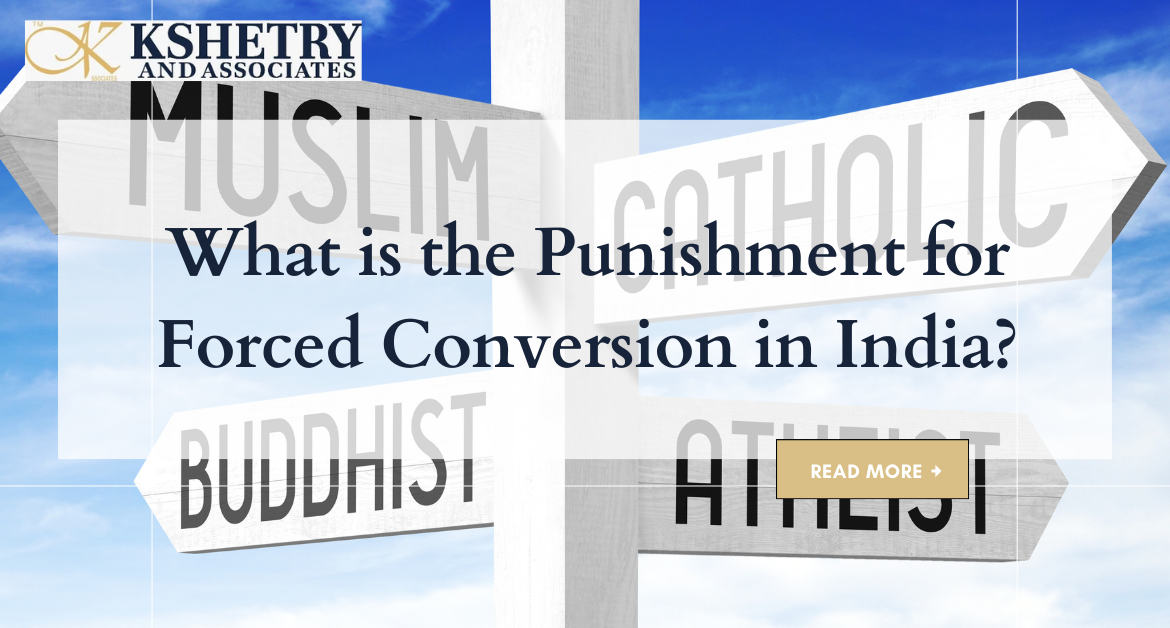India’s relationship with religious conversions is shaped by its diverse religious demographics and the constitutional guarantee of religious freedom. However, concerns about forced conversions—where individuals are coerced, deceived, or pressured into changing their religion—have led to the enactment of stringent anti-conversion laws in several states. These laws aim to protect vulnerable groups from exploitation while upholding the right to freely practice and propagate religion.
In recent years, legislative efforts have intensified, with states implementing or amending anti-conversion laws to prevent forced conversions more effectively. The penalties for such actions vary by state, ranging from imprisonment to hefty fines, depending on the severity of the offense and the victim’s circumstances.
Understanding Forced Conversion in India
Forced conversion involves coercing someone to change their religion against their will through threats, fraud, undue influence, or other deceptive means. While Article 25 of the Indian Constitution guarantees the right to freely profess, practice, and propagate religion, this right does not extend to coercion or deceitful conversion practices. Anti-conversion laws focus on preventing such forced conversions while balancing religious freedoms and public order.
Several Indian states have enacted anti-conversion laws to address these concerns, detailing strict penalties for violations.
State-Specific Penalties for Forced Conversion
Uttar Pradesh
The Prohibition of Unlawful Conversion of Religion (Amendment) Bill, 2024, imposes severe penalties for forced conversions.
- Penalties:
- Maximum imprisonment of 20 years, with life imprisonment for extreme cases involving threats or deception.
- Marriages conducted solely for religious conversion are deemed illegal, with penalties ranging from 20 years to life imprisonment.
- Non-bailable offences prevent accused individuals from obtaining bail during trials.
Himachal Pradesh
The Himachal Pradesh Freedom of Religion Act enforces strict measures to prevent forced conversions.
- Penalties:
- Up to 10 years in prison for coercive conversions.
- Individuals must notify the local magistrate at least one month before converting, ensuring the conversion is voluntary.
Karnataka
The Karnataka Protection of Right to Freedom of Religion Act, 2021 emphasizes safeguarding vulnerable groups.
- Penalties:
- 3–5 years of imprisonment and fines up to ₹25,000 for forced conversions.
- More severe penalties of up to 10 years and fines of ₹50,000 for conversions involving minors, women, or Scheduled Caste/Tribe members.
Odisha
Odisha was the first Indian state to enact anti-conversion laws through the Odisha Freedom of Religion Act, 1967.
- Penalties:
- Up to 1 year of imprisonment and/or a fine of ₹5,000 for violations. Repeat offences attract harsher penalties.
- Mandatory reporting of conversions to district authorities to verify voluntariness.
Haryana
The Haryana Prevention of Unlawful Conversion of Religion Act, 2022 outlines clear penalties for coercive conversions.
- Penalties:
- 1–5 years of imprisonment.
- Fines start at ₹100,000, increasing based on case severity.
Madhya Pradesh
The Madhya Pradesh Freedom of Religion Act imposes significant penalties for forced conversions.
- Penalties:
- Up to 3 years of imprisonment and fines up to ₹50,000.
- Harsher penalties for cases involving minors or marginalized groups, such as Scheduled Castes or Tribes.
Common Trends in Anti-Conversion Laws
While penalties vary across states, certain themes are consistent:
- Length of Imprisonment: Sentences range from 1 year to life imprisonment, depending on the severity of the offence.
- Protection of Vulnerable Groups: Higher penalties are applied when victims are women, minors, or members of Scheduled Castes or Tribes.
- Fines: Convictions often involve fines between ₹25,000 and ₹300,000, depending on state regulations and case specifics.
- Non-Bailable Offenses: States like Uttar Pradesh designate forced conversions as non-bailable offences.
- Mandatory Reporting: Some states require prior notification to authorities before religious conversions, ensuring transparency.
Anti-Conversion Laws: The Rationale
Anti-conversion laws aim to protect individuals from being coerced or deceived into changing their religion. In a society as religiously diverse as India, forced conversions can lead to significant social and cultural repercussions. These laws ensure religious freedom while discouraging exploitative practices.
Some laws also address controversial issues like “love jihad,” a term used by certain groups to describe alleged efforts to convert individuals through interfaith marriages. Although its validity remains debated, the concept has influenced stricter anti-conversion legislation in several states.
Conclusion
The punishment for forced conversion in India varies significantly across states, reflecting their distinct legal frameworks and concerns. Penalties range from 1 year to life imprisonment, with harsher consequences for targeting vulnerable groups. Additional fines and mandatory reporting further reinforce these laws.
As India continues to grapple with balancing religious freedom and safeguarding individuals from coercion, anti-conversion laws remain a focal point in addressing these complex challenges.
Find the best law firm in Kolkata for your legal needs.
Also Read: How to Handle Property Inheritance Disputes: Legal Solutions for Families in Kolkata

